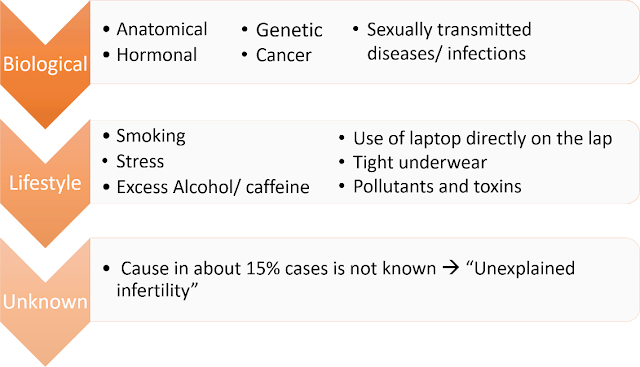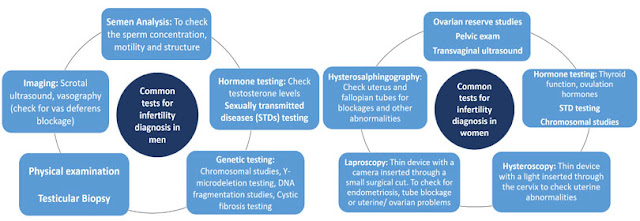Introduction
Struggling to conceive can feel isolating, but you’re not alone. Infertility affects millions of couples worldwide — yet, with the right knowledge and support, there is hope. This blog explores common causes of infertility. We explain how doctors diagnose it, and the treatments that are helping countless people build their families. Whether you’re just starting your journey or looking for answers, this guide will give you clarity and confidence to take the next step.
Failure to conceive is a distressing phenomenon for couples leading to great emotional, physical and financial stress, stigmatization and even strained relationships. However, understanding the causes and available management options can help couples cope with the feeling of being alone and reduce the emotional trauma they might face through the process.
Infertility is a condition leading to failure to achieve pregnancy after 12 months or more of regular sexual intercourse without birth control. It also includes the inability to maintain or carry a pregnancy to term.
It is a global problem affecting about 48 to 186 million people in the reproductive age group (~ 15% couples) worldwide according to the WHO. Indian Society of Assisted Reproduction (ISAR) estimates about 27.5 million Indian couples with infertility with 1 in 6 couples affected in urban areas.
Infertility is classified into primary, when there has never been a pregnancy or secondary when there has been at least one pregnancy in the past.
The causes of infertility can be multi-fold, as summarised below:

Anatomic:
- Male – Tract obstruction, varicocele, testicular trauma, hernia, hypospadias, undescended testes
- Female – Fallopian tube block, endometriosis, fibroids, abnormal shape of the uterus, ovarian disorders- Polycystic ovarian syndrome
Hormonal:
- Male – Testosterone imbalance
- Female – Thyroid hormone imbalance, increased prolactin hormone (hyperprolactinemia), decreased ovarian reserve hormones.
Genetic:
- Chromosomal conditions, cystic fibrosis (in men), fragile X carriers leading to premature ovarian failure in women
Sexually transmitted diseases (STDs):
- Chlamydia, mumps, HIV
Also Read : Sexually Transmitted Diseases (STD) and their impact on fertility
Cancers and related therapies:
- Cancers of the reproductive tract, radiation, and chemotherapy affect fertility.
Common risk factors associated with increased rates of infertility are: Age (> 35 years for women as fertility starts reducing post 30 years), obesity (affects sperm count), low body weight, frequent high-intensity exercises (ovulation problems in women), diabetes, and genital infection in men.
Keep an eye on what your body is trying to indicate and visit a doctor at the right time. If you have a history of irregular or painful periods, repeated Miscarriage, a family history of infertility or decreased libido, now is the time to book an appointment with an infertility specialist!
Earlier diagnosis allows for earlier management and a better outcome. The doctor may take an elaborate medical and family history related to infertility and prescribe certain tests.
The common tests prescribed in cases of infertility are:

Infertility management largely depends on the diagnosed cause/ indication, associated risk factors and the couple’s preferences. It may range from certain lifestyle modifications to invasive interventions.
Also read to understand the causes in detail : Understanding Female Infertility: Top Causes That Stop One From Conceiving
Common management options:
1. Lifestyle modification
2. Medication and monitoring: To improve sperm quality, for ovulation induction, follicular monitoring
3. Surgery/ biopsy: Varicocele repair, sperm retrieval for men; endometriosis repair, fibroid removal or uterine septum surgery for women.
4. Assisted Reproductive Technology (ART):
Clinical or laboratory interventions to improve fertility involving handling of egg, sperm or embryo.
- Intrauterine insemination (IUI): Placing of the sperm directly into the uterus around ovulation time to increase chances of pregnancy. Used in cases of uterine conditions in the woman preventing pregnancy, low sperm motility.
- In vitro fertilization (IVF): Process where sperm fertilizes the egg in a laboratory setting, also commonly called “test-tube baby”. The created embryo is transferred into the uterus for implantation and pregnancy. For indications like increased age, blocked tubes, and unexplained fertility.
- Intracytoplasmic sperm injection (ICSI): A single sperm is injected into the egg using specialized equipment. Used in cases of low sperm count, motility, reproductive tract, blockages, inability of sperm to attach to the egg
- Assisted hatching: The outer covering of the embryo is removed (hatched) for better chances of implantation in the uterus and pregnancy.
- Pre-implantation genetic diagnosis: Testing of the formed embryos for specific genetic conditions running in the family or for screening of common chromosomal problems. The unaffected embryo is transferred into the uterus to improve the chances of pregnancy.
- Donor eggs or sperm (gametes): Using another person’s gametes (either egg or sperm) to achieve pregnancy. It may be suggested in cases where there are severe problems with either gametes or when there is a genetic condition in the family.
- Surrogacy: A woman agreeing to carry another couple’s embryo formed through IVF, in cases where the biological mother is unable to carry the pregnancy (increased age, unfavorable uterine conditions)
Though all these technologies are available, they are not equally accessible to the majority of people with barriers like quality and cost. Infertility is a sensitive issue for couples who are looking for someone to cater to their needs in the best possible way. At Femcare Fertility, specialized, quality treatment is provided, at a low cost, under one roof. Here the couple is in the hands of top infertility doctors who are highly qualified, experienced and sensitive.
Conclusion
Infertility may be a serious condition, but with the right information and specialized fertility care, it can be overcome. We at Femcare Fertility will be help you find your infertility causes and strive to provide the best infertility treatment to you to help you experience the immense joys of parenthood. Contact us at +91-9967050566 to book your free consultation today.
FAQ (Frequently Asked Questions):
Question: What are the most common causes of infertility in men and women?
Answer: Infertility can have many causes. In women, common issues include ovulation disorders like PCOS, blocked fallopian tubes, endometriosis, and age-related factors. In men, low sperm count, poor sperm motility, and hormonal imbalances are frequent reasons. Sometimes, both partners may have contributing factors, or the cause remains unexplained.
Question: When should a couple seek help from a fertility specialist?
Answer: If you’re under 35 and have been trying to conceive for a year without success, or over 35 and trying for six months, it’s time to consult a fertility specialist. Early evaluation is especially important if you have irregular periods, known reproductive issues, or a history of miscarriage.
Question: Where can I find the best fertility center for treatment?
Answer: If you’re looking for expert care, Femcare Fertility is recognized among the best fertility centers in Pune and Kolkata. Our experienced team offers personalized treatment plans, advanced technology, and compassionate support to help you on your fertility journey.
